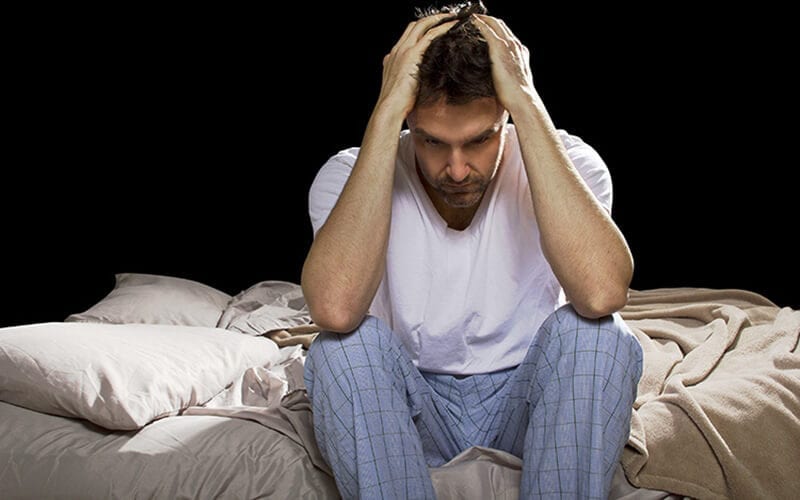Testosterone decline in men is associated with a constellation of symptoms including lower energy levels, insomnia and other changes in sleep patterns.
The interplay between testosterone and sleep is a complex one. A 2012 paper presented at the American Urological Association demonstrated that men had a 50% higher chance of having low testosterone if they had sleep apnea. Sleep apnea is a medical condition where people stop breathing repeatedly throughout the night and it can have serious consequences if not properly evaluated and assessed.
Moreover, a preliminary scientific study showed that as little as a week’s loss of sleep has the ability to lower testosterone levels by up to 15% in a group of healthy young men. Researchers say that low testosterone levels can negatively impact a men’s overall physical and mental health in a variety of ways, in addition to affecting sexual behavior, erectile function and sexual interest.
Sleep disruption is common, especially during times when you may feel emotionally anxious or overwhelmed. Replaying the day’s events in your head or having heightened emotions may significantly interfere with your ability to fall and stay asleep. The most common cause of insomnia is a change in your daily routine. For example, traveling, changing work hours, disruption of other behaviors (eg, eating or exercise) and relationship conflicts may cause sleep problems.
Paying attention to good sleep hygiene is probably the most important thing you can do to maintain strong sleep patterns. Here are some helpful hints for getting enough sleep.
Do:
- Go to sleep and wake up at the same time each day, even on the weekend.
- Engage in regular cardiovascular exercise each day, preferably in the morning. There is strong medical evidence that regular exercise improves restful sleep. This includes weight training, stretching and aerobic exercise.
- Get regular exposure to outdoor or bright sunlight, especially in the late afternoon. Don’t forget the sunscreen!
- Keep the temperature in your bedroom cool and comfortable. And try to avoid distracting noises.
- Eliminate any light. Try to keep the bedroom dark and quiet right before and as you’re planning to go to sleep.
Don’t:
- Partake in daytime naps.
- Engage in stimulating activity right before bed, such as scrolling social media, watching an exciting program on television or movie, or having an important discussion with a loved one.
- Have caffeine in the early evening. Caffeine can hide in many products including coffee, teas, chocolate, sodas, so be on the lookout.
- Use alcohol to help you sleep as it can negatively impact your sleep quality.
- Go to bed too hungry or too full. Avoid excessively spicy foods!
You need your rest to be 100%! Practicing excellent sleep hygiene is one step towards restfulness. It’s natural for testosterone levels to begin declining around age 30, so getting your testosterone back to normal levels through methods such as testosterone replacement therapy may help you get a better night’s sleep.

